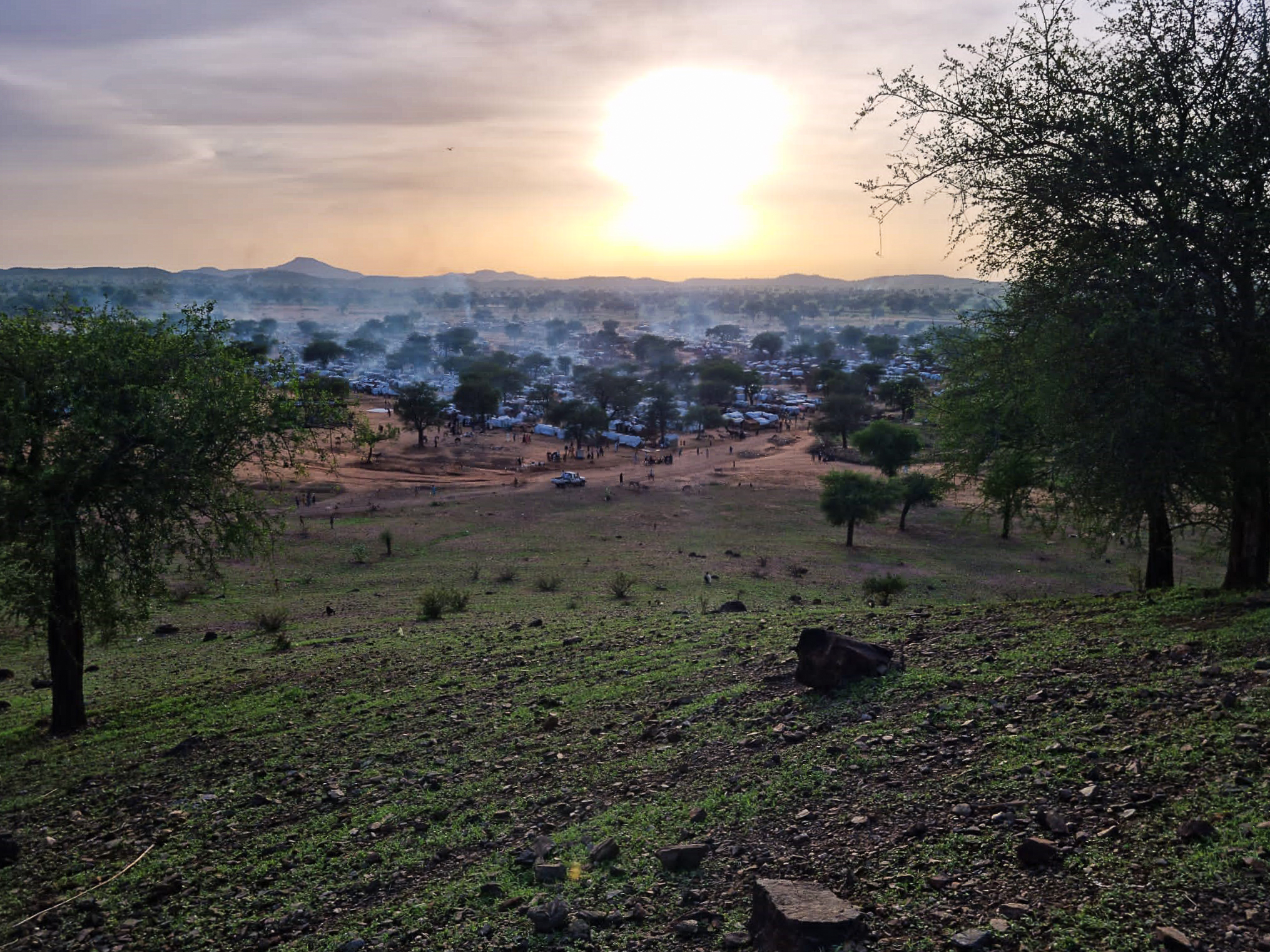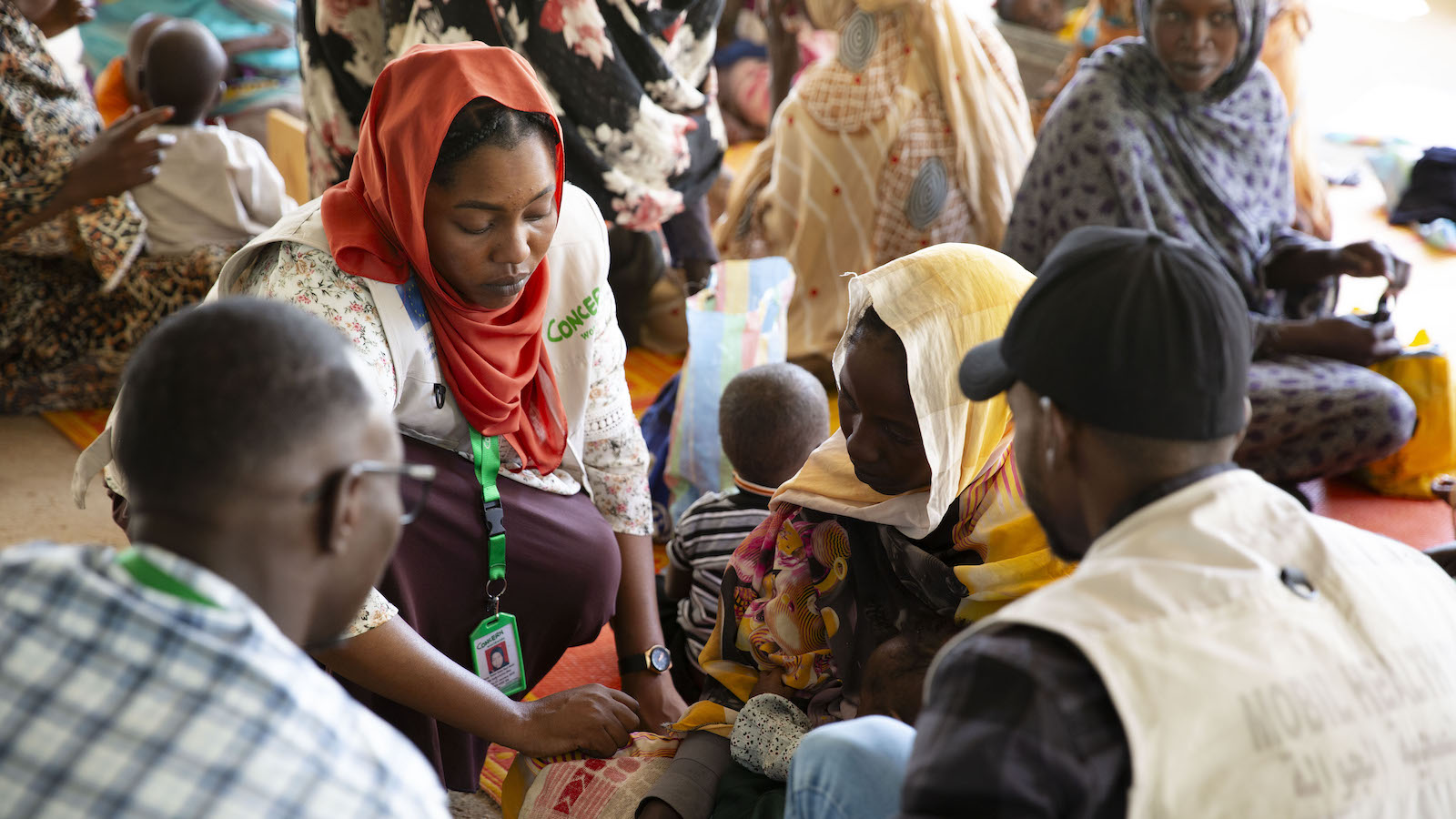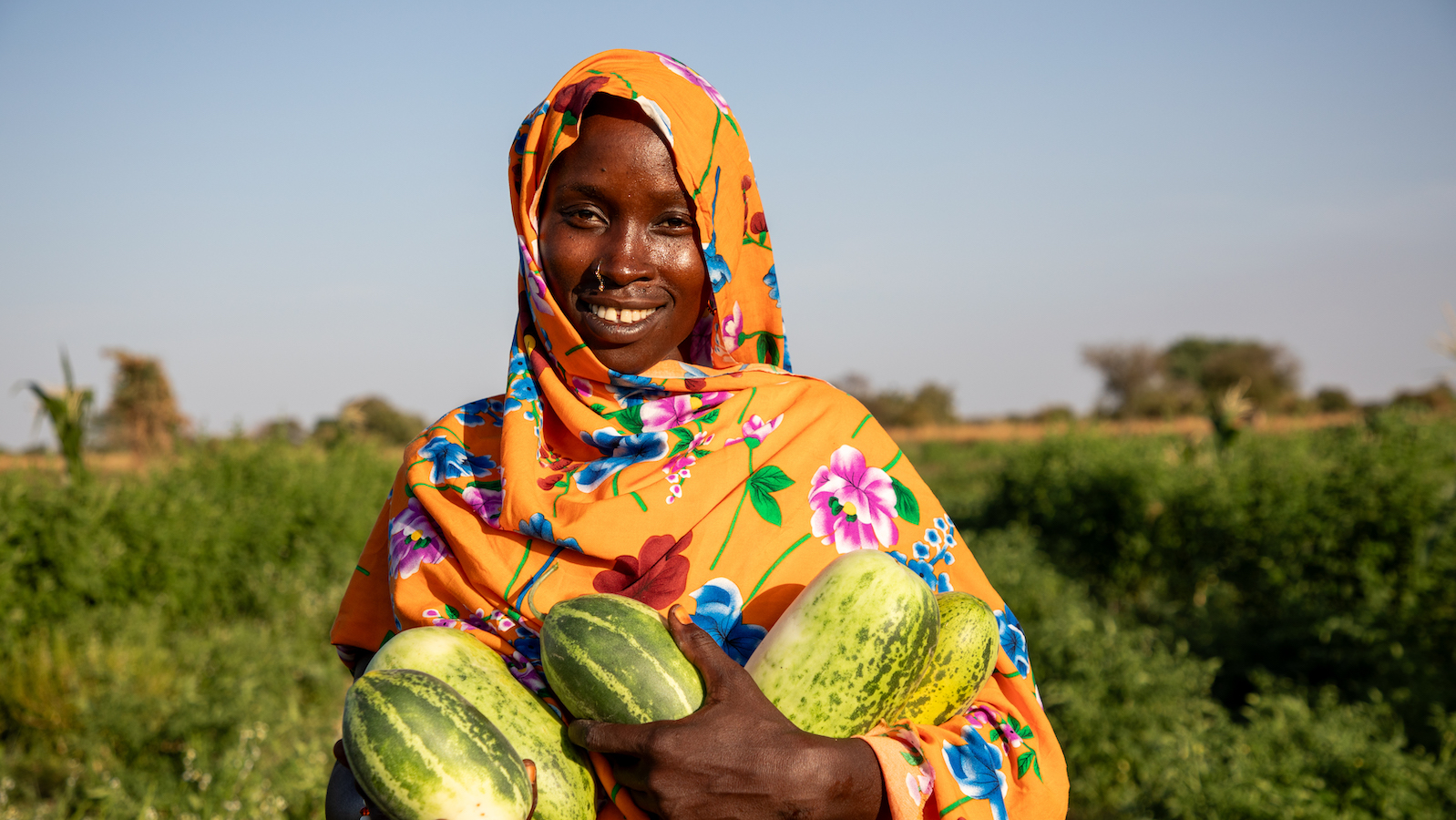Aid workers and government officials in Chad are engaged in a massive and time-sensitive effort to get tens of thousands of people to safety, as fighting in neighboring Sudan continues to drive huge displacement of the population there.
Millions on the move
Numbers have surged dramatically in recent weeks, as the nature of the conflict evolves and basic human services become harder to access. It’s estimated that as many as two million people inside Sudan are now displaced from their homes, with another 500,000 or more having crossed into neighboring countries, including Central African Republic, Chad, Egypt, Ethiopia, and South Sudan.
Reports suggest that hundreds of thousands of people in the Darfur region of Sudan are attempting to leave the country but remain trapped by heavy fighting.
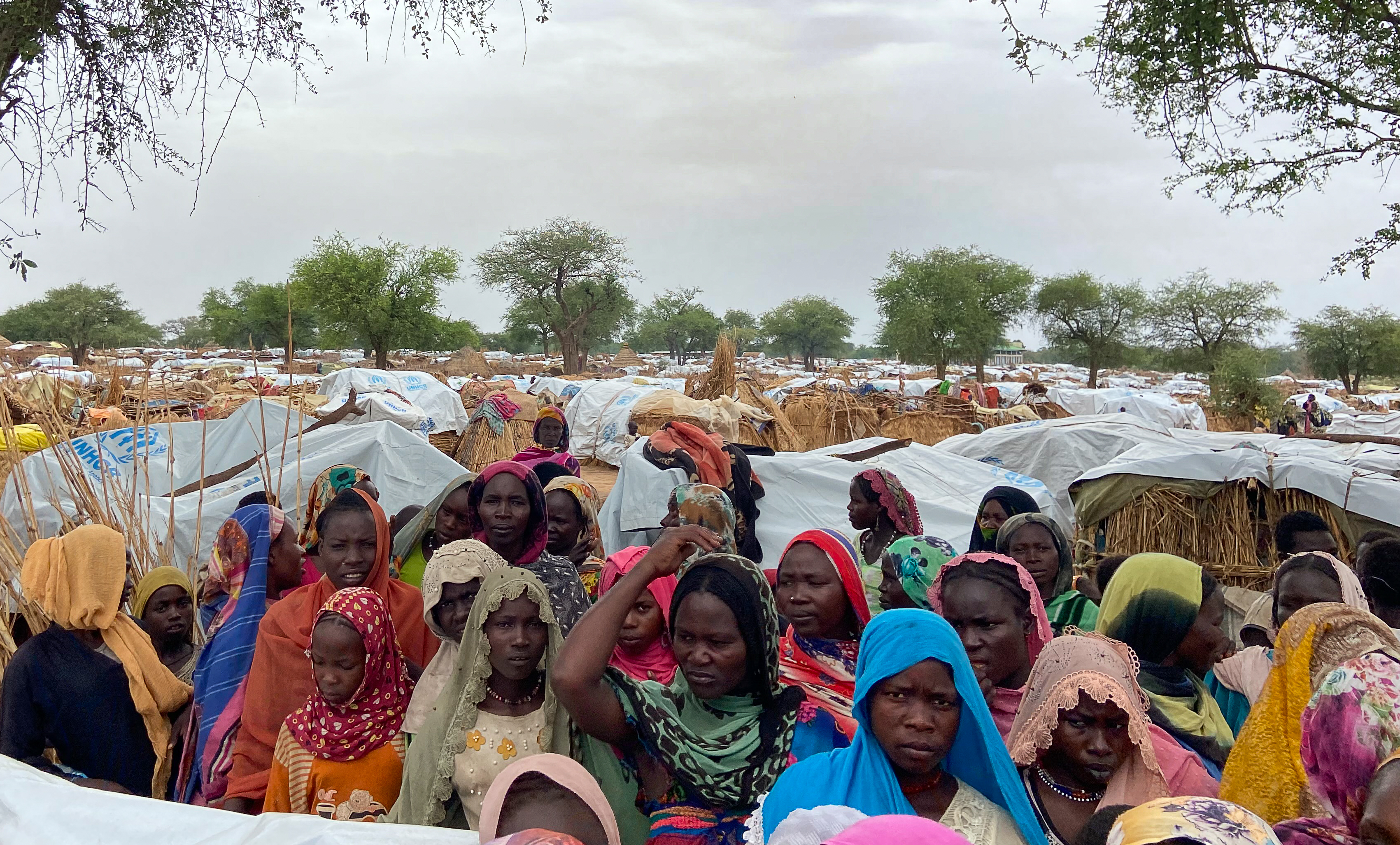
Concern’s Regional Director, Reka Sztopa, has spent time on the Chad side of the border and says that the situation for those seeking refuge is extremely distressing. “I met people whose village or town had been attacked, mostly in the middle of the night and they had fled with just whatever they could grab. Many of the women had either witnessed their husbands being killed or had become separated from family members in the chaos of fleeing their town.”
Mariama* described what happened to her. “At around 1am we started hearing screaming, as armed men began to set fire to parts of El Geneina. We grabbed the children and started to flee. We were together for a while but become separated en route amidst the chaos. I arrived at the Adré border crossing with only 4 of my children. I do not know what has become of my 4 other children and my husband.”
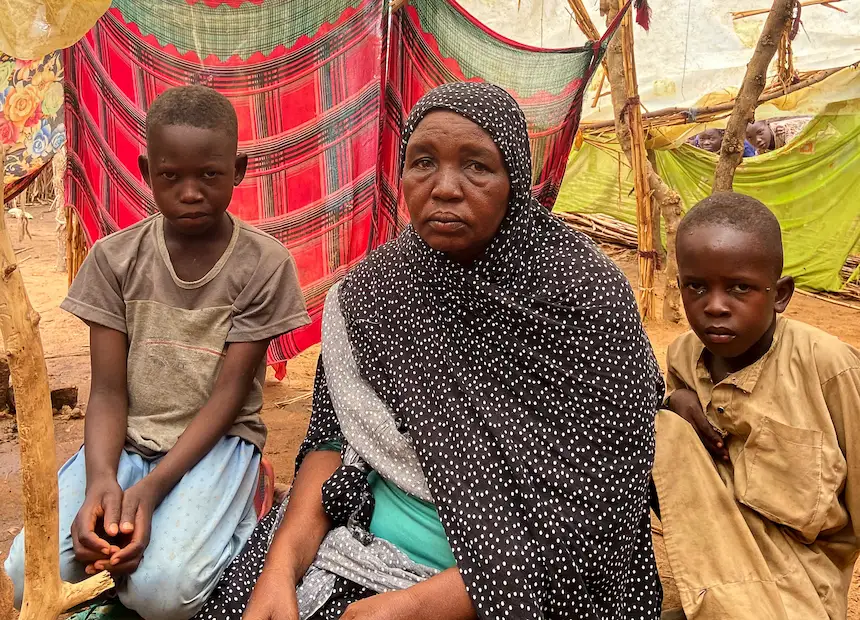
Support our emergency response work
90% of the people coming across the border to the area where Concern works are women and children. Many have been walking for days and describe how they were forced to pay bribes to armed men at informal checkpoints along the way. Medical organizations have reported treating thousands of people for injuries suffered during the exodus, including many with bullet wounds.
Tough conditions
Once they reach Chad, people are being registered and accommodated in makeshift transit camps, awaiting transport to more established camps further from the border. Reka Sztopa says “There is clean water available for now, but the sanitation facilities are very basic and it’s important that these people get to more secure and appropriate accommodation as soon as possible.”
Poor sanitation and cramped conditions often lead to outbreaks of diseases such as cholera, which can be especially devastating for young children. Even a measles outbreak can rapidly become deadly and already it is reported to be a problem among displaced populations on the Sudanese side of the border.
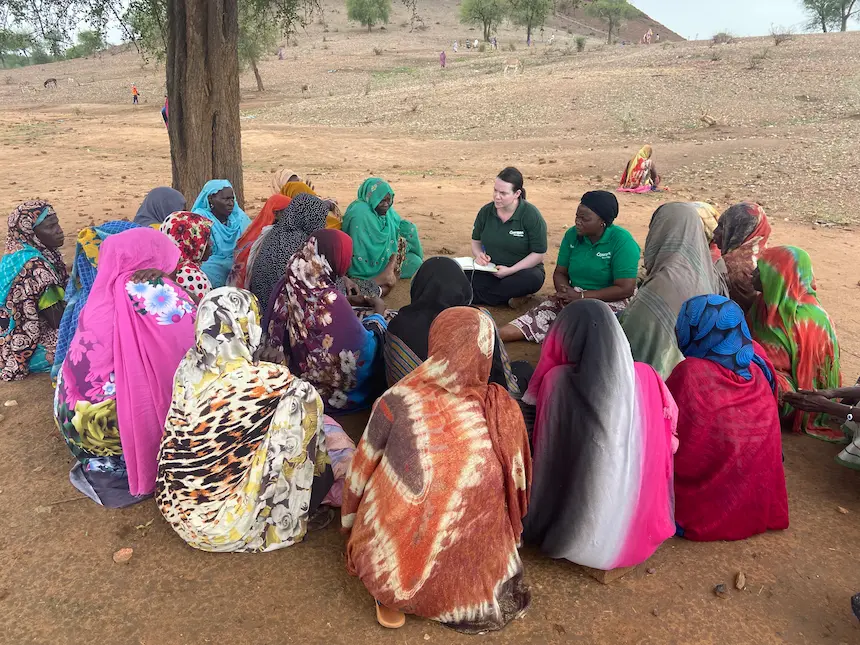
According to Reka, the situation has taken on added urgency with the arrival of the annual rainy season. “Many of the areas on the border will be partially or completely blocked off over the next few months, and the rivers or the wadis are already filling up. Once those fill up, some of them become completely impassable for the next four to six months. And so there's a big concern about how to support people who are going be cut off.”
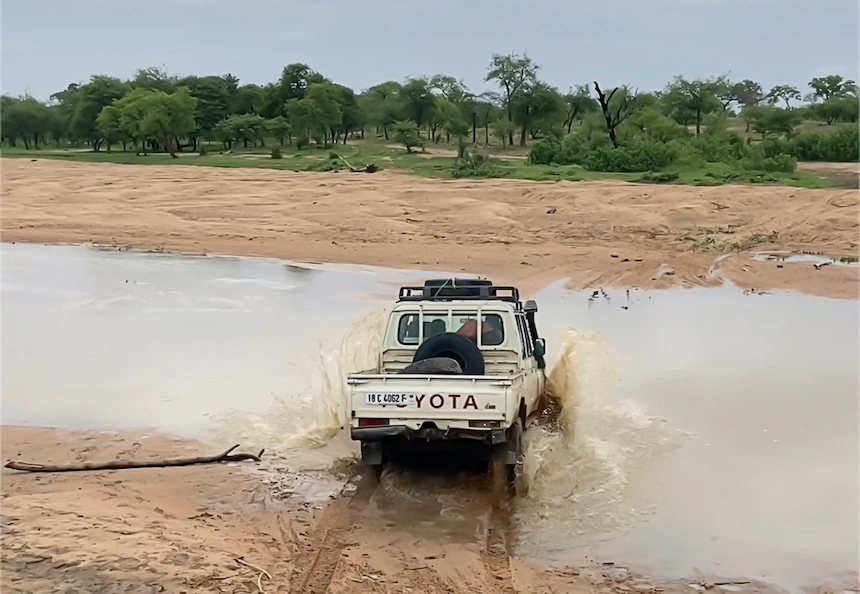
What we're doing
Concern’s team, which has been working in Chad since the last big displacement of people from Darfur in 2007, has already begun distributing kits of household and dignity items that include:
- Blankets, sleeping mats, and mosquito nets.
- Jerrycans for water, purification tablets.
- A bucket and bars of soap.
- Pots, plates, and utensils.
- A solar powered flashlight.
- Reusable sanitary pad and a pagne (wrap) for women.
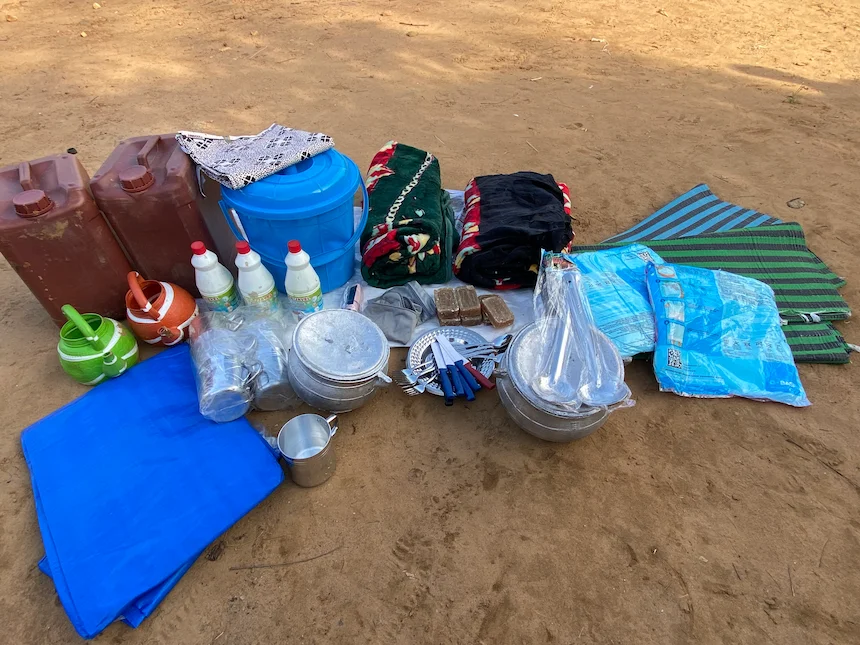
Reka adds, “We've also started a mobile health and nutrition clinic in the transit camp and that service is available to everybody on a daily basis at the moment.” Malnutrition is a real concern — many people were already on a reduced diet before the fighting broke out, because of a prolonged regional drought, and days of displacement and travel have weakened them even further. The clinic is also delivering a vaccination service.
Concern continues to ramp up its response to a humanitarian crisis that will quite likely deteriorate and become more protracted. “This is quite a big regional crisis that’s not getting a lot of attention at the moment,” according to Reka Sztopa. “There are a lot of efforts being made to respond to the needs, but it’s at a scale that’s very high, in a logistically difficult location, and there’s a shortage of funding. Our teams are working flat out to support as many people as we can.”
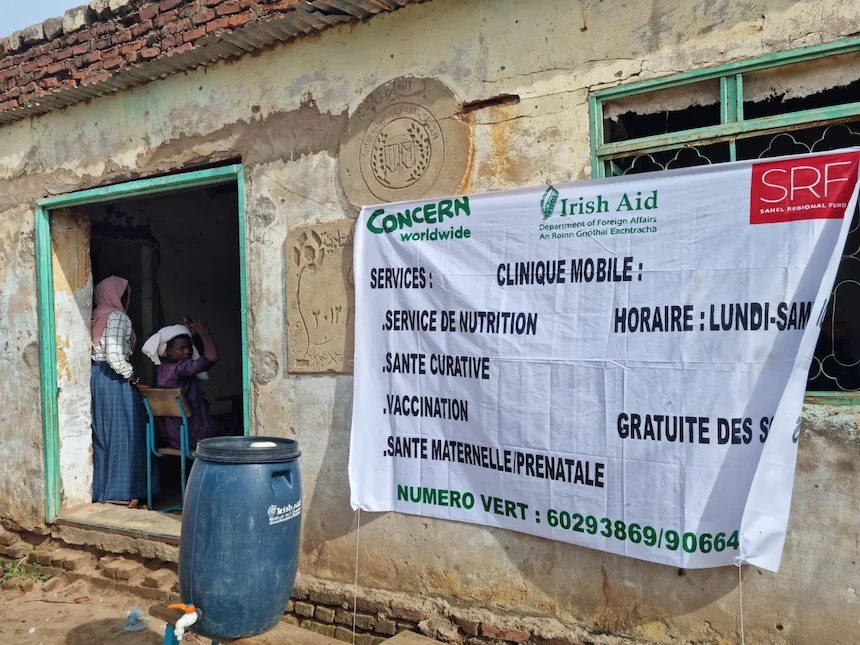
Support Concern's emergency work
*Names have been changed for security reasons

